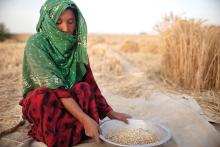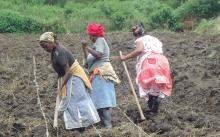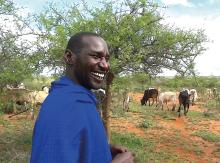Land Library
Welcome to the Land Portal Library. Explore our vast collection of open-access resources (over 74,000) including reports, journal articles, research papers, peer-reviewed publications, legal documents, videos and much more.
/ library resources
Showing items 1 through 9 of 320.This country profile presents the Land Matrix data for Cambodia, detailing large-scale land acquisition (LSLA) transactions that:
• entail a transfer ofrights to use, control or own land through sale, lease or concession;
• have an intended size of 200 hectares (ha) or larger;
Ce profil pays présente les données de la Land Matrix pour République Démocratique du Congo et inclut les acquisitions de terres à grande échellequi:
• consistent en des transferts du droit d’exploitation ou de contrôle des terres au moyen bail ou de la concession;
Through collecting data on large-scale land transactions, the Land Matrix increases transparency to foster accountability of investors and other parties involved in large-scale land transactions.
Land and associated property is a major source of individuals’ identity and livelihood.
It is widely accepted among economists and policy-makers that secure and well-defined land property rights are integral to poverty alleviation and economic prosperity. But how do legal systems, land tenure and economic development really relate to one another?
Access to land is key to achieving food security, poverty alleviation, social equity and environmental protection. A brief insight in land governance-related principles and policies of the German development assistance.
Following the end of apartheid, South Africa’s government set itself ambitious goals with a planned land reform. However, there have since been barely any changes in the country’s agricultural structure, and the positive impacts that were hoped for on rural livelihoods have hardly materialised.
Indigenous Peoples and local communities hold a large share of the world’s land area under customary systems. However, there is a tremendous gap between what is held by communities in practice and what is formally recognised by governments.
The year 2016 marks 15 years since the new wave land reforms became operational in Tanzania. Despite its ambitious goals – encouraging land registration and titling, and empowering women and other vulnerable groups – the results are disillusioning.







